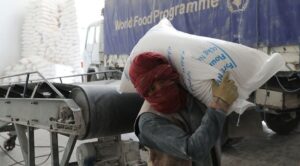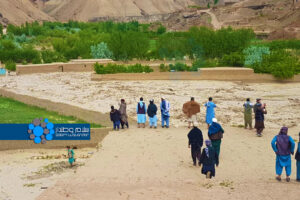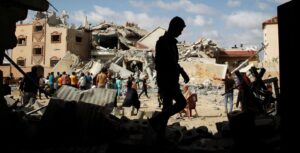PAKTIA (SW) – A number of patients seeking treatment at the 30-bed hospital in Zurmat district of Paktia have voiced their grievances regarding the inadequate health facilities and equipment in the hospital. These patients are facing challenges and difficulties due to the lack of essential health resources in the medical facility.
Musakhan, a resident of Zurmat whose child is suffering from tuberculosis, says that he has come to the hospital to diagnose his son’s illness. However, due to a lack of the necessary equipment, he and many other patients go to Gardiz City for treatment.
“I am poor and I cannot go to Gardiz city. The tuberculosis detection machines should be available in this hospital,” Musakhan added.
Mohammadjan, another resident of Zurmat, expresses distress over the absence of a blood bank in the 30-bed hospital in this district. His seven-year-old son, suffering from thalassemia, requires monthly blood transfusions. However, the inadequate provision of a blood bank and essential equipment in the hospital has created challenges for him and other patients in need of timely blood transfusions.
“When the patients come to the hospital, there is no blood bank, and with problems, they announce the required blood for patients.”
Mirza Khan, an employee at the 30-bed hospital in Zurmat district, also admits that the hospital is facing a shortage of medicine. He says that medicine is given to this hospital only as much as the population of this district, but residents of Rohani Baba and Matakhan districts also visit this hospital for treatment.
“This DH hospital and other clinics in this district do not have the equipment needed to diagnose tuberculosis.”
Abdul Mobin, the head of the 30-bed hospital in Zurmat district, sheds light on the challenges faced by the hospital and patients due to the lack of tuberculosis diagnostic machines. The hospital encounters difficulties in diagnosing tuberculosis cases, relying on a microscope to distinguish approximately 10 to 12 patients with tuberculosis each month.
“In our society, the number of tuberculosis patients is very high. Therefore, if the tuberculosis diagnostic machine is available here, a large part of the patients’ problems would be resolved and we will not send the patients who come here for treatment to Gardiz.”
Meanwhile, Rahmatullah, the head of the tuberculosis department in the Public Health Department of Paktia, says that last year, 2,168 patients with symptoms of tuberculosis visited six health centers in the Zurmat district, of which only 169 were diagnosed positive.
In response to the challenges faced by the 30-bed hospital in Zermat district due to the lack of a tuberculosis diagnostic device, officials from Paktia’s Public Health Department have assured their commitment to addressing this issue. Plans are underway to dispatch the necessary diagnostic equipment to the hospital, emphasizing the importance of bolstering the hospital’s capacity for tuberculosis diagnosis and treatment.






